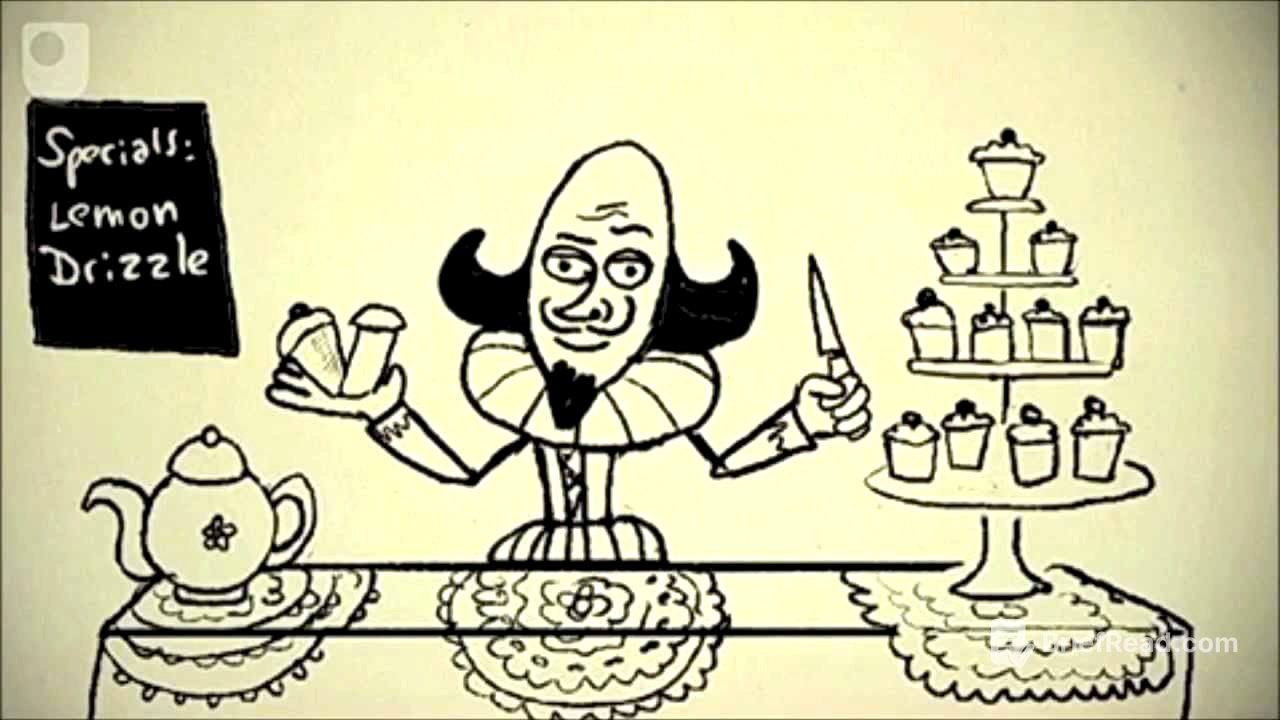TLDR;
This video provides a concise yet comprehensive overview of the history of the English language, from its Anglo-Saxon origins to its current status as a global language. It covers key periods and influences, including the Roman departure, Anglo-Saxon and Viking invasions, the Norman Conquest, Shakespeare's contributions, the King James Bible, the impact of science, the British Empire, the creation of dictionaries, American English, and the influence of the internet. The video highlights how English has constantly evolved by absorbing words and influences from various cultures and historical events.
- Anglo-Saxon origins and the influence of Latin and Viking languages.
- The Norman Conquest and the infusion of French vocabulary.
- Shakespeare's impact on the English language through new words and phrases.
- The King James Bible's contribution to metaphor and morality in English.
- The development of scientific vocabulary in English.
- The spread of English through the British Empire and its interaction with local languages.
- The efforts to standardize English through dictionaries.
- The divergence of American English and its influence on British English.
- The impact of the internet on the evolution of English.
- English as a global language with diverse regional variations.
Chapter 1 anglo-saxon or whatever [0:02]
The English language began after the Romans left Britain, leading to an influx of Germanic tribes such as the Angles and Saxons, who formed the Anglo-Saxons. While the Romans left behind straight roads, their Latin language had minimal impact compared to the Anglo-Saxon vocabulary, which consisted of practical, everyday words. Four days of the week were named after Anglo-Saxon gods. Christian missionaries then arrived, introducing Christianity and Latin-derived words like "martyr," "bishop," and "font." The Vikings contributed action-oriented words such as "drag," "ransack," "trust," and "die," as well as common terms like "give" and "take," adding approximately 2,000 words to the English language.
Chapter 2 the norman conquest or excuse my english [1:11]
In 1066, William the Conqueror invaded England, bringing French language and culture. French became the language of official business, contributing words like "judge," "jury," "evidence," and "justice." While Latin remained in use in the church, the common people spoke English. English speakers used words like "cow," "sheep," and "swine," while the French-speaking elite used "beef," "mutton," and "pork," establishing a trend of complex restaurant menus. English absorbed around 10,000 new words from the Normans. The English then used their new military vocabulary to fight the Hundred Years' War against France, after which English replaced French as the language of power.
Chapter 3 shakespeare or a plaque on both his houses [2:20]
William Shakespeare is credited with inventing approximately 2,000 new words and phrases. He introduced common words like "eyeball," "puppy dog," and "anchovy," as well as more elaborate words like "dauntless," "besmirch," and "lackluster." Shakespeare also popularized catchphrases; without him, phrases like "eat our flesh and blood out of house and home" or "green-eyed monster" would not exist. His poetry demonstrated the richness and expressive power of the English language.
Chapter 4 the king james bible or let there be light reading [3:26]
In 1611, a new translation of the Bible, the King James Version, was created. This translation aimed to be accessible to all, using language that even common people could understand. The King James Bible introduced numerous phrases and metaphors that have become deeply embedded in the English language, such as "a leopard can't change its spots," "a bird in the hand is worth two in the bush," and "a wolf in sheep's clothing." It significantly shaped the way English is spoken through its metaphors and moral teachings.
Chapter 5 the english of science or how to speak with gravity [4:34]
Before the 17th century, scientists were not well-recognized, but figures like Robert Hooke, Robert Boyle, and Isaac Newton emerged in Britain. The Royal Society was formed, initially using Latin for their work. However, they soon switched to English to facilitate quicker understanding and progress. The rapid pace of scientific discovery necessitated the invention of new words such as "acid," "gravity," "electricity," and "pendulum." Scientists also developed new terms related to the human body, including "cardiac," "tonsil," "ovary," and "sternum," which helped in sex education.
Chapter 6 english and empire or the sun never sets on the english language [5:44]
As English became the language of science, the Bible, and Shakespeare, Britain expanded its influence through colonization. In the Caribbean, they discovered words like "barbecue" and "canoe," and brought back "cannibal." In India, they adopted "yoga," "cummerbund," and "bungalow." Africa contributed words like "voodoo" and "zombie." Australia provided "nugget," "boomerang," and "walkabout." The British Empire, controlling vast territories and populations, led to the development of new varieties of English worldwide.
Chapter 7 the age of the dictionary or the definition of a hopeless task [6:55]
As English expanded, lexicographers sought to standardize the language. Dr. Johnson's dictionary, which took nine years to compile, contained 42,773 entries. Later, the Oxford English Dictionary was started in 1857 and took 70 years to complete, facing numerous challenges during its creation. Despite these efforts, the continuous invention of new words proved that stopping language evolution was impossible.
Chapter 8 american english or not english but somewhere in the ballpark [8:06]
When the British arrived in America, they adopted words from Native American languages for new plants and animals, such as "raccoon," "squash," and "moose." Waves of immigrants contributed words from Dutch (e.g., "coleslaw," "cookies"), German ("pretzels," "delicatessens"), and Italian ("pizza," "pasta," "mafia"). American English developed a new vocabulary related to capitalism and urban life, including terms like "break-even," "bottom line," "freeways," and "subways." Some older English words, like "fall," "faucets," "diapers," and "candy," persisted in America while the British adopted "autumn," "taps," "nappies," and "nhs dental care."
Chapter 9 internet english or language reverts to type [9:16]
The advent of the internet in 1972 brought about new changes in the English language. Typing became prevalent, leading to new terms like "download," "toolbar," and "firewall." Online conversations became shorter, with abbreviations like "imho" (in my humble opinion), "btw" (by the way), and "fail" becoming common. Some of these internet-based changes even influenced spoken English.
Chapter 10 global english or whose language is it anyway [10:26]
Over the past 1500 years, English has demonstrated a remarkable ability to absorb, evolve, and adapt. Originating in Britain, it has traveled the world, incorporating words from over 350 languages. Today, approximately 1.5 billion people speak English, with a quarter being native speakers, a quarter speaking it as a second language, and half using it for basic communication. Various regional forms of English have emerged, such as Hinglish (Hindi English), Chinglish (Chinese English), and Singlish (Singaporean English). Given its global nature and diverse influences, it may be time to reconsider calling it "English" altogether.









